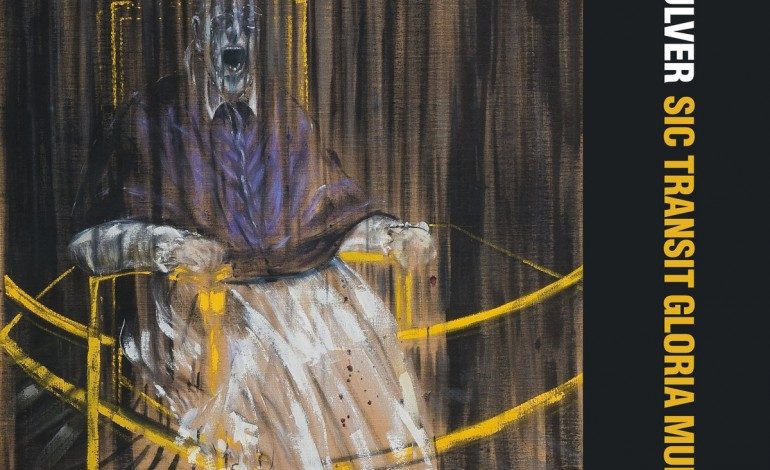

Diving Deeper into the Black
Those who have been paying attention know that Ulver isn’t like most bands. While other acts would happily embrace the success they found on their first album and continue in their chosen genre. Ulver has consistently shifted from a metal band into a synth rock outfit that would fit better at Cloak and Dagger than they would at Wacken. On Sic Transit Gloria Mundi EP they crawl further into the rabbit hole of ’80s synth rock by toying with more electronics, and stranger guitar tones and atmospheres.
The first song is a pretty straightforward synth driven track that could have come from She Wants Revenge rather than a band of metal gods. “Echo Chamber (Room of Tears)” perfectly encapsulates their new genre by focusing on guitar layers that glide behind dreamy vocals. Each vocal part is layered endlessly atop itself, much in the way that Tears for Fears did long ago. The effects go a long way toward creating an engaging atmosphere even if the songs do come across as somewhat overly similar, though it is hard to fault a three song EP from doing that. Exciting moments crop up here and there, like the closing portions of “Echo Chamber (Room of Tears)” that utilize Dick Dale-esque guitars over a rising wash of synth and drums.
Later, portions of the EP is almost poppy in their execution. “Bring Out Your Dead” continues along a similar path of goth-y synth rock, though it is more driven and energetic than the opening track. Energy-wise, “Bring Out Your Dead” rises to a peak in the later parts of the track with a false crescendo that trails off into a heavy synth rhythm with whines of feedback and an indecipherable spoken section that crackles with static and distortion. “The Power of Love” is clever from the moment of the title. While the other two tracks have had a far more gothic or metal tone to them, “The Power of Love” could be the title of any number of tracks from the ’80s. In terms of tempo, “The Power of Love” is significantly slower than the previous tracks and makes for a good closing out of the record. It explicitly references vampires, which feels apt considering the soaring synth and screaming organ parts make the track seem like a love song from Dracula. When the track eventually closes, it does so with one last forceful blast from the organ before allowing itself to fade away with repetition.
Ulver, interestingly enough, chooses not to break new ground for the first time. Sic Transit Gloria Mundi builds on, rather than turns away from, the ideas they explored on The Assassination of Julius Caesar. Much of this is done on a smaller, more focused scale, allowing them to explore fewer ideas through each song. What it all adds up to is a tightly woven and extremely listenable album that seems as though it fell right out of 1983.
